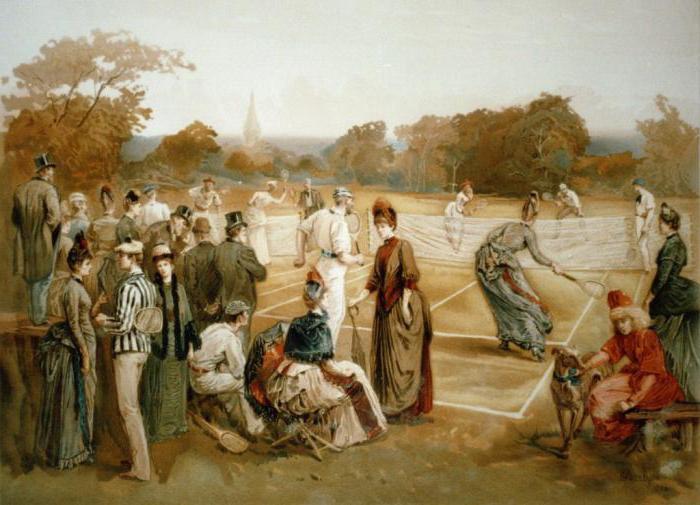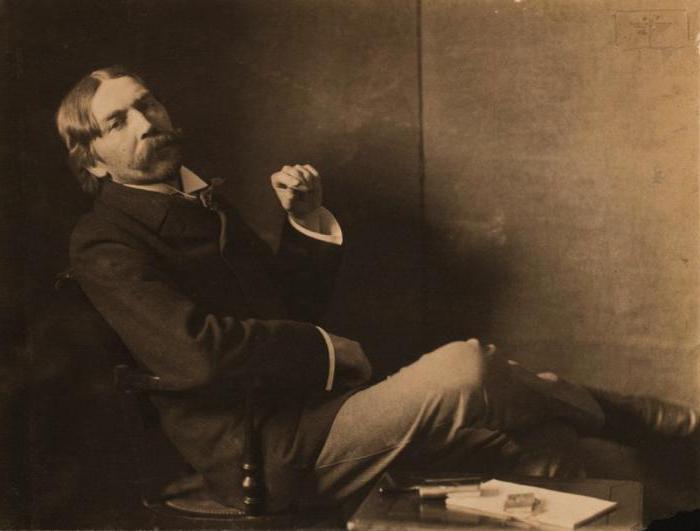Thorstein Bunde Veblen (born July 30, 1857, Manitowoc County , Wisconsin, USA, and died August 3, 1929 near Menlo Park , California, USA) is an American economist and sociologist who has used an evolutionary, dynamic approach to the study of economic institutions. The work “The Theory of the Idle Class” (1899) made him famous in literary circles, and the expression “conspicuous consumption” coined by him, describing the life of rich people, is still widely used.
early years
Thorstein Veblen was born in a family of immigrants from Norway and did not know English until he went to school, so all his life he spoke with an accent. He graduated from Carleton College in Northfield , Minnesota in 3 years, proving himself to be a brilliant student and a mocking individualist. Veblen studied philosophy with John Hopkins and at Yale University, receiving a Ph.D. in 1884. Unable to find a teaching position, he returned to his father's farm in Minnesota , where he spent most of the next 7 years reading. According to the biographer, for several days you could see only the top of his head in the attic window.
In 1888, Veblen married Ellen Rolf , who came from a wealthy and influential family. Unable to find work, in 1891 he entered graduate school at Cornell University. There, Thorstein was so impressed with J. Lawrence Laughlin that when, in 1892, the latter was asked to head the economic department at the new University of Chicago, he took it with him. But Veblen became a teacher only in 1896, when he was 39 years old.
Founder of institutionalism
Veblen's first book, The Idle Class Theory, with the subtitle Economic Research of Institutions, was published in 1899. The work that they read today presents most of his ideas. The institutionalism of Thorstein Veblen was to apply Darwin’s evolution to the study of contemporary economic life and the influence of social institutions such as the state, law, traditions, morality, etc. The industrial system, in his opinion, required conscientiousness, efficiency, and cooperation, then how business leaders were interested in making a profit and demonstrating their fortune. An echo of the predatory, barbaric past is what Thorstein Veblen understood by the word "wealth." He was pleased to explore the “modern relics” in the entertainment, fashion, sports, religion and aesthetic tastes of the ruling class. The work interested the literary world, where it was read as a satire, not a scientific work, and thus Veblen gained a reputation as a social critic whose worldview extended far beyond the academic horizon.

Career failures
However, his reputation did not bring him academic success. He was an indifferent teacher who despised the university ritual of lecturing and exams. His most famous course, “Economic Factors in Civilization,” covered vast areas of history, law, anthropology, and philosophy, but paid little attention to orthodox economic theory. In 1904, he published Theory of Entrepreneurship, in which he expanded on his evolutionary theme of the incompatibility of the modern industrial process and the irrational means of business and finance (that is, differences in the production of goods and making money).
In Chicago, Veblen achieved only the rank of assistant professor and was forced to leave the university after being accused of marital infidelity. In 1906, he began teaching at Stanford University. After 3 years, his personal affairs again forced him to resign.
Productive period
With some difficulties, Thorstein Veblen found a teaching position at the University of Missouri with much lower pay and stayed there from 1911 to 1918. He divorced Ellen Rolf , with whom he had been married since 1888, and in 1914 married Anna Fessenden Bradley . She had two children (both girls) , whom she brought up in accordance with the utilitarian ideas of her husband, set forth in the "Theory of the idle class."
In Missouri, the economist went through a fruitful period. In the work “Instinct of mastery and the state of industrial art” (1914), Thorstein Veblen emphasized that a business enterprise is in fundamental contradiction with the human propensity for useful efforts. Too much of humanity’s energy has been wasted due to inefficient institutions. World War I reinforced Veblen's pessimism regarding the prospects of the human race . In Imperial Germany and the Industrial Revolution (1915), he suggested that this country has an advantage over democratic states such as the United Kingdom and France, since its autocracy is capable of channeling the gains of modern technology into the service of the state. He acknowledged that the advantage was only temporary, as the German economy would ultimately develop its own system of demonstrative squandering. The book "Study of the nature of the world and the conditions of its perpetuation" (1917) brought Veblen international recognition. In it, he argued that modern wars were caused mainly by the competitive demands of national business interests, and that lasting peace could be ensured only through property rights and a price system in which these rights were valid.

Further career
In February 1918, Veblen took a job at the US Food Administration in Washington, but his approach to economic problems was useless for government officials, and he remained in office for less than 5 months. In the fall of 1918, he became a member of The Dial, a New York literary and political magazine for which he wrote a series of articles, “The Modern Point of View and the New Order,” later published in the form of the book “Entrepreneurs and the Common Man” (1919). Another series of articles that appeared later in the journal was published in the book by Thorstein Veblen “Engineers and the Pricing System” (1921). In them, the author developed his ideas for reforming the economic system. He believed that engineers with the knowledge to start an industry should take the lead because they would manage, increasing efficiency rather than profit. This theme was central to the technocratic movement that briefly existed during the Great Depression.
Final years
While the prestige of Torstein Veblen reached new heights, his personal life did not add up. He left The Dial, having worked in the publication for a year. His second wife had a breakdown, followed by her death in 1920. Veblen himself also needed the care of several loyal friends and, apparently, could not talk to strangers interested in his ideas. He lectured at the New School for Social Research in New York for some time, and was supported financially by his former student. Veblen ’s last book, Property of Absentees and Entrepreneurship in the Modern Age: An American Example (1923), was poorly written and presented a monotonous review of corporate finance, in which he again emphasized the contradiction between industry and business.
In 1926, he refused to teach and returned to California, where he lived with his stepdaughter in a mountain hut overlooking the sea. There he remained until the end of his life.
Value
Thorstein Veblen's reputation reached yet another high point in the 1930s , when it seemed to many that the Great Depression justified his criticism of the business. Although the reading public regarded him as a political radical or socialist, the American economist was a pessimist who had never been involved in politics. Among his colleagues, he had both fans and critics, but there were more of them. The scientific analysis of modern industrial society is largely due to Veblen's German colleague Max Weber , whose ideas are more complex. Even his closest students found his anthropological and historical approach too broad to satisfy their scientific requirements, although they admired his vast and original knowledge. One of his most famous fans, Wesley C. Mitchell , called him “a visitor from another world” and noted that social science does not know the second such liberator of the mind from the subtle tyranny of circumstances, as well as a pioneer of new areas of economic research similar to him.